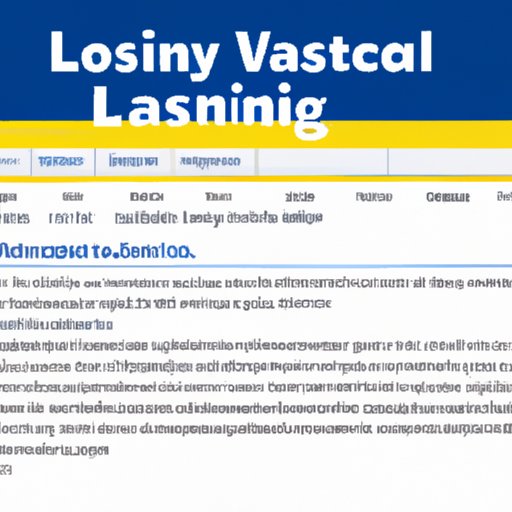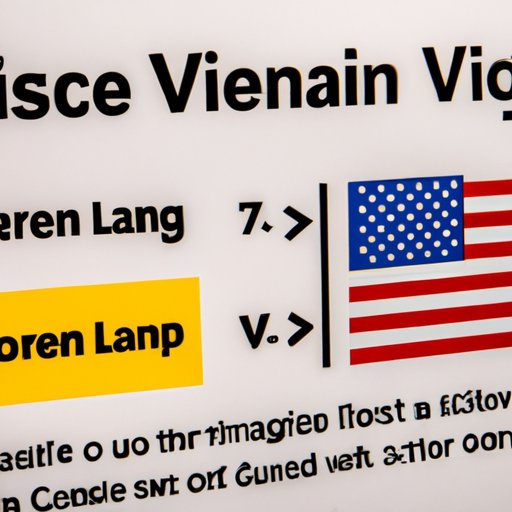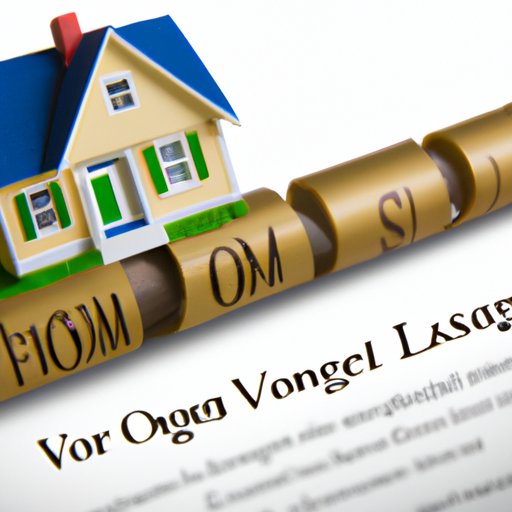Introduction
A VA loan is a home loan backed by the U.S. Department of Veterans Affairs (VA). It is designed to help veterans and active-duty military personnel purchase homes with favorable loan terms. Closing costs are fees associated with the purchase of a home that must be paid before the loan can be finalized. These costs can add up quickly and can be a major obstacle for many prospective homebuyers. This article explores the possibility of financing closing costs with a VA loan.
Definition of VA Loan
A VA loan is a mortgage loan issued by a private lender and guaranteed by the U.S. Department of Veterans Affairs. It is designed to help active-duty military personnel, veterans, and their families purchase homes. VA loans offer several advantages over traditional mortgages, such as no down payment requirement, no private mortgage insurance (PMI) requirement, and lower interest rates. In addition, VA loans are typically more lenient when it comes to credit score requirements.
Overview of Closing Costs
Closing costs are the various fees associated with buying a home that must be paid before the loan can be finalized. These costs can include appraisal fees, title insurance, origination fees, attorney’s fees, and other miscellaneous expenses. The amount of these costs can vary greatly depending on the type of loan and the area in which the home is being purchased. Closing costs typically range from 2% to 5% of the total loan amount.
Benefits of Financing Closing Costs with a VA Loan
Financing closing costs with a VA loan can be beneficial for many homebuyers, especially those who are short on cash. By including closing costs in the loan amount, buyers can avoid having to come up with a large sum of money at the time of closing. Additionally, financing closing costs with a VA loan may make it easier to qualify for the loan by reducing the amount of cash required upfront.
Exploring the Possibilities of Financing Closing Costs with a VA Loan
What Are the Different Types of Financing Options?
When it comes to financing closing costs with a VA loan, there are two main options: rolling the costs into the loan amount or using a seller concession. Rolling the costs into the loan amount means that the closing costs will be added to the total loan amount and paid off over the life of the loan. This option is only available if the borrower has sufficient equity in the home to cover the additional costs. Alternatively, a seller concession allows the seller to pay for some or all of the closing costs. This can be a great way to reduce the amount of cash needed upfront, but it is important to note that not all sellers are willing to provide this type of assistance.
Is It Possible to Include Closing Costs in the Loan Amount?
Yes, it is possible to include closing costs in the loan amount when financing a VA loan. However, it is important to understand that this option is not always available. To be eligible, borrowers must have sufficient equity in the home to cover the additional costs. Additionally, the VA limits the amount of closing costs that can be included in the loan amount to 4% of the total loan amount.

Understanding the Impact of Financing Closing Costs with a VA Loan
How Does Financing Closing Costs Affect Your Loan Terms?
Financing closing costs with a VA loan can have an effect on your loan terms. When closing costs are included in the loan amount, the total loan amount increases, resulting in higher monthly payments and a longer loan term. Additionally, the interest rate on the loan may be slightly higher due to the additional risk associated with the larger loan amount.
What Additional Fees May Be Incurred?
In addition to the closing costs, borrowers may also be responsible for certain additional fees when financing closing costs with a VA loan. These fees can include VA funding fees, which are based on the loan amount and the borrower’s military status. Borrowers should speak with their lender to determine what additional fees may apply.

Comparing Financing Options for Closing Costs with a VA Loan
Traditional Mortgages vs. VA Loans
When comparing financing options for closing costs, it is important to consider how traditional mortgages compare to VA loans. With a traditional mortgage, it is not typically possible to roll closing costs into the loan amount. As a result, borrowers must come up with the cash to cover these costs at the time of closing. On the other hand, VA loans allow borrowers to finance closing costs, making them a more attractive option for those who may not have the cash available to cover these costs upfront.
FHA vs. VA Loans
Another option to consider when financing closing costs is an FHA loan. Like VA loans, FHA loans allow borrowers to finance closing costs, however, the maximum allowable amount is much lower—just 1% of the total loan amount. Additionally, FHA loans require borrowers to pay mortgage insurance, whereas VA loans do not. This can make VA loans a more attractive option for those looking to finance closing costs.

Investigating the Pros and Cons of Financing Closing Costs with a VA Loan
Advantages of Financing Closing Costs with a VA Loan
- No need to come up with a large amount of cash at the time of closing.
- Allows borrowers to qualify for a larger loan amount.
- No need to pay for private mortgage insurance.
Disadvantages of Financing Closing Costs with a VA Loan
- Higher monthly payments due to increased loan amount.
- Longer loan term due to increased loan amount.
- Possibility of paying additional fees, such as VA funding fees.
Conclusion
Financing closing costs with a VA loan can be a great way to reduce the amount of cash needed upfront when purchasing a home. However, it is important to understand the implications of including closing costs in the loan amount. Higher monthly payments, a longer loan term, and possible additional fees are all potential downsides to consider. Ultimately, borrowers should weigh the pros and cons of financing closing costs with a VA loan before making a decision.
This article has provided an overview of the possibilities of financing closing costs with a VA loan. It has explored the different types of financing options available, the impact it can have on loan terms, and the pros and cons of doing so. For those considering financing closing costs with a VA loan, this article serves as a helpful guide to understanding the process and making an informed decision.
Recommendations for Further Research
- Comparing VA loans to other loan types, such as conventional mortgages and FHA loans.
- Exploring the various closing costs associated with VA loans.
- Understanding the VA funding fee and how it affects loan terms.
- Researching state-specific programs that provide assistance with closing costs.
(Note: Is this article not meeting your expectations? Do you have knowledge or insights to share? Unlock new opportunities and expand your reach by joining our authors team. Click Registration to join us and share your expertise with our readers.)
